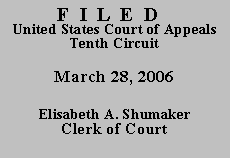

On December 22, 1993, Gordon was convicted in the District Court of Denver County, Colorado, in Case No. 93CR1049, on one count of menacing, one count of second degree kidnapping, and one count of assault in the third degree, as a result of incidents that occurred on November 28, 1991. Although it is not entirely clear from the record, it appears that Gordon made an unsuccessful attempt to appeal these convictions to the Colorado Court of Appeals. In early 1995, Gordon also filed with the Colorado Supreme Court a petition for writ of certiorari seeking review of the Colorado Court of Appeals' decision. That petition was apparently denied by the Colorado Supreme Court.
On July 5, 2005, Gordon filed in federal district court a petition for writ of habeas corpus pursuant to 28 U.S.C. § 2254. Gordon's petition alleged that (1) he "was illegally extradite[d] back to the state of Colorado in violation of customary international law," and (2) was subjected to torture as a pretrial detainee (including poisoning, denial of sleep, denial of medical treatment, and the intentional infliction of physical and mental suffering). ROA, Doc. 5 at 5. On July 28, 2005, the magistrate judge directed Gordon to file an amended petition limiting his claims to those properly raised in a habeas proceeding, demonstrating exhaustion of state court remedies, and demonstrating the timeliness of his claims. On August 18, 2005, Gordon filed an amended petition that essentially added three additional claims: (1) ineffective assistance of trial counsel, (2) prosecutorial misconduct (submission of false information to the trial court and jury), and (3) denial of proper jury instructions. The amended petition failed, however, to clarify when each of the claims asserted in the amended petition had been presented to and ruled on by the Colorado appellate courts. Accordingly, on September 29, 2005, the district court dismissed Gordon's amended petition without prejudice. The district court subsequently denied Gordon's motion for reconsideration, as well as his request for a COA. Gordon has now filed an application for COA with this court.
"A certificate of appealability may issue . . . only if the applicant has made a substantial showing of the denial of a constitutional right." 28 U.S.C. § 2253(c)(2). "When the district court denies a habeas petition on procedural grounds without reaching the prisoner's underlying constitutional claim, a COA should issue when the prisoner shows, at least, that jurists of reason would find it debatable whether the petition states a valid claim of the denial of a constitutional right and that jurists of reason would find it debatable whether the district court was correct in its procedural ruling." Slack v. McDaniel, 529 U.S. 473, 484 (2000).
Under 28 U.S.C. § 2254(b)(1)(A), federal courts may not grant an application for a writ of habeas corpus on behalf of a state prisoner unless the prisoner has "give[n] the state courts one full opportunity to resolve any constitutional issues by invoking one complete round of the State's established appellate review process." O'Sullivan v. Boerckel, 526 U.S. 838, 845 (1999). Here, the district court concluded, and we agree, that Gordon has failed to establish that he gave the Colorado state courts such an opportunity. Although Gordon has included in his appellate pleadings a copy of the petition for writ of certiorari he filed with the Colorado Supreme Court, it is clear that the petition for writ of certiorari did not include all of the claims that he now includes in his federal habeas petition. Accordingly, we agree with the district court that Gordon has failed to establish that he exhausted his state court remedies with respect to each of the claims asserted in his amended petition.(1)
The request for a COA is DENIED, the request to proceed in forma pauperis on appeal is DENIED, and the appeal is DISMISSED.
Entered for the Court
Mary Beck Briscoe
Circuit Judge
*.This order is not binding precedent, except under the doctrines of law of the case, res judicata, and collateral estoppel.
1.Gordon's claim that he was tortured by Arapahoe County officials while awaiting trial is not a viable claim for habeas relief. Rather, it would have to be asserted in a civil rights action filed pursuant to 42 U.S.C. § 1983. That said, however, it appears to us that the torture claim, as well as all of the remaining claims asserted in Gordon's amended petition, are untimely.